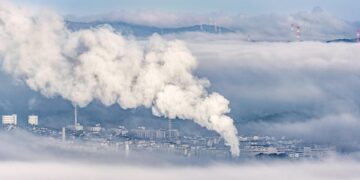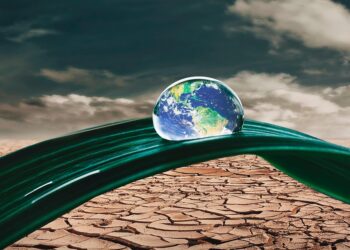Breaking Boundaries: The Impact of New Climate Policies on a Changing World
As the world continues to grapple with the effects of climate change, governments around the globe are implementing new policies aimed at reducing greenhouse gas emissions and transitioning to a more sustainable future. These new climate policies are breaking boundaries and reshaping the way we think about our impact on the environment. In this article, we will explore the impact of these policies on a changing world and how they are shaping the future of our planet.
The Need for New Climate Policies
Climate change is one of the most pressing issues facing our planet today. The burning of fossil fuels, deforestation, and industrial processes have led to a rise in greenhouse gas emissions, which are trapping heat in the Earth’s atmosphere and causing temperatures to rise. This has resulted in a range of negative impacts, including more frequent and severe natural disasters, rising sea levels, and disruptions to ecosystems and biodiversity.
In response to these challenges, governments and policymakers are implementing new climate policies aimed at reducing emissions and mitigating the effects of climate change. These policies are designed to transition economies away from fossil fuels and towards renewable energy sources, increase energy efficiency, and promote sustainable practices in industries such as agriculture and transportation.
The Impact of New Climate Policies
One of the key impacts of new climate policies is the reduction of greenhouse gas emissions. By setting targets for emissions reductions and implementing regulations to limit pollution, governments can help to slow the pace of climate change and protect the environment for future generations. This can lead to improvements in air quality, public health, and overall quality of life.
Another important impact of new climate policies is the promotion of renewable energy sources. By providing incentives for the development of wind, solar, and other clean energy technologies, governments can help to reduce reliance on fossil fuels and create a more sustainable energy system. This can also lead to job creation in the renewable energy sector and stimulate economic growth.
Furthermore, new climate policies can help to promote sustainable practices in industries such as agriculture and transportation. By encouraging the use of environmentally friendly farming methods, promoting public transportation, and incentivizing the adoption of electric vehicles, governments can help to reduce emissions and protect natural resources.
Challenges and Opportunities
While new climate policies offer many benefits, they also present challenges. One of the main challenges is the need for widespread cooperation and coordination among countries. Climate change is a global issue that requires a coordinated response from all nations in order to be effectively addressed. This can be difficult to achieve, as countries may have different priorities and interests.
Additionally, the transition to a more sustainable economy may require significant investments in new technologies and infrastructure. This can be costly and may require financial support from governments and private sector partners. However, these investments can also create opportunities for innovation, job creation, and economic growth.
The Role of Individuals
While governments play a crucial role in implementing new climate policies, individuals can also make a difference in the fight against climate change. By making small changes in our daily lives, such as reducing energy consumption, using public transportation, and supporting renewable energy projects, we can help to reduce our carbon footprint and contribute to a more sustainable future.
Individuals can also advocate for stronger climate policies and hold their elected officials accountable for taking action on climate change. By raising awareness and engaging in grassroots activism, we can help to build momentum for positive change and push for more ambitious climate goals.
Conclusion
As the impacts of climate change become increasingly apparent, the need for new climate policies has never been greater. By implementing regulations to reduce emissions, promote renewable energy, and encourage sustainable practices, governments can help to protect the environment and create a more sustainable future for all. While challenges remain, there are also opportunities for innovation, job creation, and economic growth. By working together at the local, national, and global levels, we can break boundaries and shape a better future for our planet.
Let’s continue to push for bold and ambitious climate policies that will lead us towards a more sustainable and resilient world.












